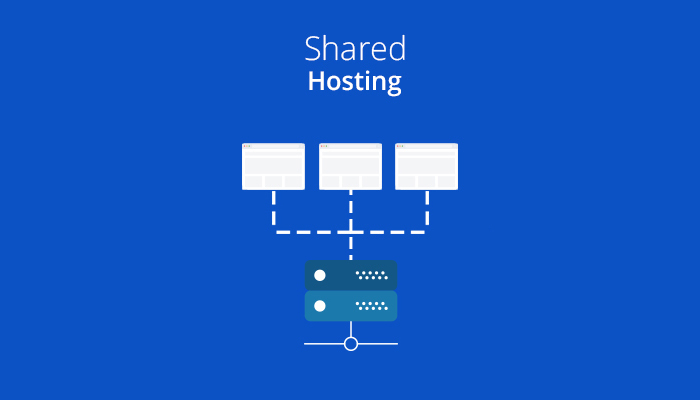When it comes to web hosting options, shared hosting is a popular and cost-effective choice for many website owners. Shared hosting involves multiple websites sharing the same server resources. While it offers advantages such as affordability and ease of use, there are also drawbacks to consider. This article explores the pros and cons of shared web hosting, helping website owners make an informed decision about whether it is the right choice for their specific needs.
The Pros of Shared Web Hosting:
- Affordability: Shared hosting is typically the most budget-friendly option for hosting a website. The cost is shared among multiple users, making it a cost-effective choice, particularly for individuals, small businesses, or those with limited budgets.
- Easy Setup and Management: Shared hosting providers offer user-friendly interfaces and control panels, making it easy for website owners to set up and manage their websites. Technical aspects such as server maintenance, software updates, and security are generally handled by the hosting provider, alleviating the need for in-depth technical knowledge.
- Resource Scalability: Shared hosting plans often provide scalability options, allowing website owners to upgrade their resources as their website grows. This flexibility makes it easier to start with a smaller plan and upgrade as traffic and resource needs increase.
- Support Services: Shared hosting plans typically come with comprehensive customer support, offering assistance with server issues, troubleshooting, and general technical inquiries. This support can be valuable for website owners who require guidance or encounter technical difficulties.
The Cons of Shared Web Hosting:
- Limited Resources: In shared hosting, resources such as CPU, RAM, and bandwidth are shared among multiple websites on the same server. As a result, if a neighboring website experiences a surge in traffic or resource usage, it can potentially impact the performance of other websites on the server.
- Performance Variability: Since resources are shared, the performance of a website hosted on a shared server can be affected by the activities and resource demands of other websites. During peak traffic periods or if neighboring websites are resource-intensive, there may be a decrease in loading speeds and overall website performance.
- Security Risks: Shared hosting involves sharing the same server environment with other websites. If one website on the server is compromised or experiences security vulnerabilities, there is a potential risk of that affecting other websites on the same server. However, reputable hosting providers implement security measures to mitigate such risks.
- Customization Limitations: Shared hosting plans often have limitations on customization options. Users may have restrictions on installing certain software or making server-level configurations. This can be a drawback for website owners who require more control and customization for their specific needs.
Shared web hosting offers affordability, ease of use, and scalability, making it an attractive choice for many website owners. However, it is important to consider the limitations in terms of resource sharing, performance variability, security risks, and customization restrictions. For individuals, small businesses, or those with websites that have moderate traffic and resource needs, shared hosting can be a cost-effective and practical solution. It is advisable to evaluate specific requirements, consider future growth projections, and choose a reputable hosting provider that prioritizes server stability and security.


